Description
Name in North American Boletes: Tylopilus sordidus
Genus: Porphyrellus
- Genus 2: Tylopilus
Species: sordidus
- Species 2: fumosipes
Common Name:
Tells: Gray- to dark-brown, oft-cracked cap. White cap flesh stains blue-green, sometimes w/reddish tints, & can taste pungent and/or smell unpleasant.
Other Information: Pores age from white- to gray-buff through pink-brown to red- & then yellow-brown, staining dark blue-to-green before resolving to brownish red. The pores can also appear darker on older and damaged specimens specimens. Cap often has dark green-blue tinges by the edge. Brownish stem is usually paler by the pores (sometimes w/ hints of green or blue) & at the base. A special tell: Wrap in wax paper for an hour & the paper will stain blue-green where it touches.
Science Notes: DNA testing moved this mushroom into the newly erected genus “Porphyrellus.”
Edibility: Unknown.
CHEMICAL TESTS:
- NH4OH (Ammonia): Cap skin turns dark purple.
- KOH: Cap skin turns purplish to reddish. Cap flesh turns brick-red to wine-red, perhaps with an olive tone.
- FeSO4 (Iron Salts): Cap flesh turns bluish gray to greenish gray.
Links:
 |
0 |  |
0 |  |
272 |  |
396 |

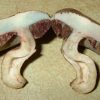
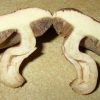
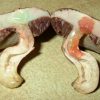
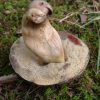
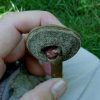
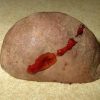
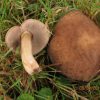
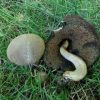
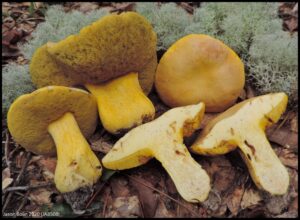

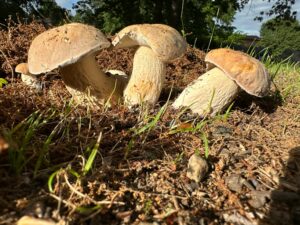
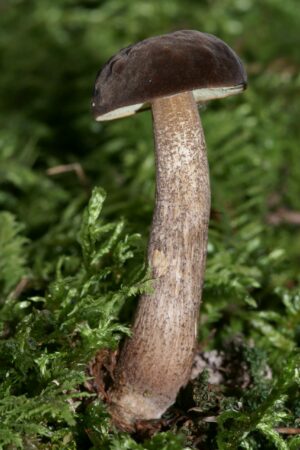
Got something to discuss?